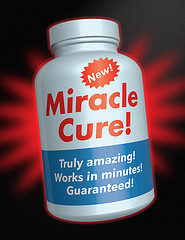Some Supplements Too Good to Be True
Posted in Drug & Medical Devices on December 3, 2013

It seems you can’t turn on the radio without hearing an ad for dietary supplements claiming to help with everything from diabetes to erectile dysfunction. Sometimes scams are obvious, but such a distinction is not always as clear. Advertisements like these can confuse consumers because the Food and Drug Administration (FDA) regulates dietary supplements under a different set of regulations than those covering conventional drug products.
Unlike prescription or over-the-counter drugs, dietary supplements are considered food and as such, are not subjected to extensive clinical trials or other strict regulations. In fact, in most cases, manufacturers don’t even need to register their products with FDA or get FDA approval before producing or selling dietary supplements.
DSHEA/FSMA
The Dietary Supplement Health and Education Act of 1994 (DSHEA) amended the Federal Food, Drug, and Cosmetic Act (FD&C Act) to define the term “dietary supplement” and establish a regulatory framework for dietary supplements. Since Congress generally considers dietary ingredients such as herbs, vitamins and minerals to be safe, dietary supplements containing these ingredients are permitted to be freely marketed, just like regular foods. This free market has allowed supplements to evolve into a $5 billion industry with limited regulations.
Under DSHEA:
- The manufacturer of a dietary supplement or dietary ingredient is responsible for ensuring that the product is safe before it is marketed.
- The FDA is responsible for taking action against any unsafe dietary supplement product after it reaches the market.
Signed into law by President Obama on January 4, 2011, the FDA Food Safety Modernization Act (FSMA) has been instrumental in FDA’s enforcement actions regarding dietary supplements. However, with no premarket testing, the FDA is still forced to play catch-up after these products are on the shelves or available online.
Beware of Scams
Health fraud scams can do more than waste your money. They can cause serious injury or even death*, says Gary Coody, R.Ph., FDA’s national health fraud coordinator. “Using unproven treatments can delay getting a potentially life-saving diagnosis and medication that actually works. Also, fraudulent products sometimes contain hidden drug ingredients that can be harmful when unknowingly taken by consumers.”
Warning Signs
While the FDA works to recall dangerous supplements, many products remain in the marketplace. The FDA offers these tips to help you identify rip-offs.
- One product does it all. Be suspicious of products that claim to cure a wide range of diseases.
- Personal testimonials. Success stories, such as, “It cured my diabetes” or “My tumors are gone,” are easy to make up and are not a substitute for scientific evidence.
- Quick fixes. Few diseases or conditions can be treated quickly, even with legitimate products. Beware of language such as, “Lose 30 pounds in 30 days” or “eliminates skin cancer in days.”
- “All natural.” Some plants found in nature (such as poisonous mushrooms) can kill when consumed. Moreover, FDA has found numerous products promoted as “all natural” but that contain hidden and dangerously high doses of prescription drug ingredients or even untested active artificial ingredients.
- “Miracle cure.” Alarms should go off when you see this claim or others like it such as, “new discovery,” “scientific breakthrough” or “secret ingredient.” If a real cure for a serious disease were discovered, it would be widely reported through the media and prescribed by health professionals—not buried in print ads, TV infomercials or on Internet sites.
- Conspiracy theories. Claims like “The pharmaceutical industry and the government are working together to hide information about a miracle cure” are always untrue and unfounded. These statements are used to distract consumers from the obvious, common-sense questions about the so-called miracle cure.
Even with these tips, fraudulent health products are not always easy to spot. If you’re tempted to buy an unproven product or one with questionable claims, check with your doctor or other health care professional first.
*A March 2013 Government Accountability Office (GAO) report found that between 2008 & 2011, the FDA received an average of 2,100 dietary supplement adverse event reports a year compared to less than 400 in 2007. The report also suggested that there is underreporting of adverse events to the FDA because consumers and health care practitioners are more likely to call poison control centers than they are to report a problem to the FDA or manufacturer.